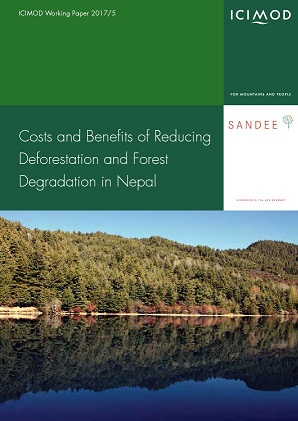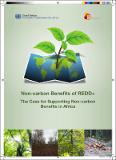Pricing forest carbon
Pricing forest carbon and putting in place the means and channels to pay for it are necessary conditions to achieve the 2030 mitigation goals. Yet, after more than 15 years of discussion, payments for
Pricing forest carbon and putting in place the means and channels to pay for it are necessary conditions to achieve the 2030 mitigation goals. Yet, after more than 15 years of discussion, payments for

The purpose of this study was to estimate the benefits and costs of reducing deforestation and forest degradation in different landscapes and management regimes in Nepal, and to provide associated opportunity
Transforming the global supply chains for beef, palm oil, soy, and pulp and paper so that they are truly sustainable is a $200-billion-a-year investment opportunity, according to a new report by the World
The National Blue Carbon Policy Assessment Framework provides guidance to countries seeking to move forward with developing synergized conservation and restoration programmes and strategies through existing
REDD+ practitioners may benefit from a common understanding of the content and potential implications of the UNFCCC decisions on REDD+ to improve country implementation of the REDD+ process. This technical
<p>Revenues derived from carbon have been seen as an important tool for supporting forest conservation over the past decade. At the same time, there is high uncertainty about how much revenue can reasonably
This study identifies domestic and international public finance that limited deforestation and encouraged sustainable land use in Côte d’Ivoire in 2015. It provides a baseline against which to measure
This report is the third in a series of reports on the status of social forestry and its role in climate change mitigation and adaptation in the Association of Southeast Asian Nations (ASEAN) region. An
Following the 2016 entry into force of the Paris Agreement, governments are now expected to turn their greenhouse gas emissions pledges into concrete climate policies. Given the global public good nature
Brazil has made significant progress in reducing deforestation in recent years while increasing agriculture production. Full implementation of the Forest Code will be the central element in achieving Brazil’s

This paper sets out to argue why NCBs from the implementation of REDD+ activities are critical to the long-term sustainability of REDD+ activities and should therefore benefit from REDD+ phase I and phase